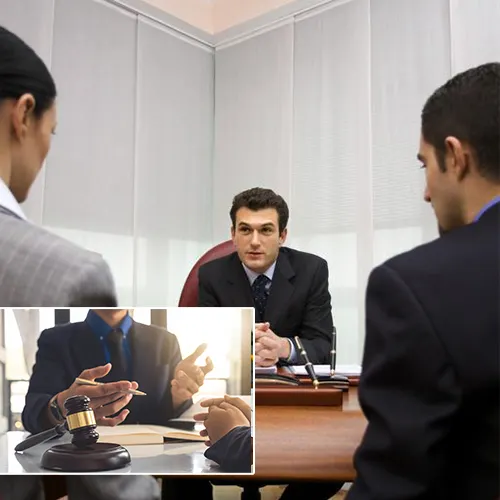Expert Tips: Recording DUI Traffic Stops Legally and Effectively
Recording DUI Traffic Stops
Welcome to Fowler Kathryn Law Office

Have you ever wondered what you should do if you get pulled over for a DUI? At Fowler Kathryn Law Office, we understand how crucial it is to be prepared for such situations. Recording DUI traffic stops can serve as a critical tool for preserving your rights and ensuring that all legal procedures are followed correctly. It's essential to know how to properly record an encounter and, equally importantly, to understand the dos and don'ts of such a sensitive situation.
Our team is dedicated to educating you on the best practices of recording traffic stops. We emphasize the importance of knowing your rights and having access to legal professionals who can adeptly use such evidence should you need them. Let's dive into the world of traffic stops, the power of recording them, and how they can protect you legally.
Remember, in case of any questions or to book an appointment, our experts are just a call away at (512) 218-1536.
Understanding Your Right to Record
Recording public officials, including police officers, while performing their duties is generally protected by the First Amendment. This means, during a traffic stop, you have the right to record as long as you're not interfering with the officer's ability to carry out their duties. Knowledge is power and knowing this empowers you to hold everyone accountable.
The presence of a recording device can often encourage transparency from all involved parties. Every action, every word, is documented and can later be reviewed for accuracy and legality. However, laws can differ from state to state, which is why understanding the specifics of your locale is critical.
Recording Without Obstruction
One key aspect of recording law enforcement is to do so without obstructing their work. This means keeping a safe distance and not physically interrupting the stop. Holding your phone or camera steadily and capturing the entire interaction without confrontation may help protect you if any legal questions arise later on.
Our legal advisors strongly suggest informing the officer politely that you are recording the stop. While this isn't always required, it demonstrates good faith and transparency from your end, which is always a plus in any legal scenario.
Knowing the Local Laws
Local laws surrounding recording can be tricky. In some states, all parties must consent to being recorded, known as "two-party consent" laws. In others, only one party (which could be you) needs to give consent, and those are "one-party consent" states. Take the initiative to discover your state's laws or reach out to us for a clear explanation.
At Fowler Kathryn Law Office, our advice is always rooted in current laws and best practices. By staying informed, you can rest assured that your recording is both valid and lawful. Don't be caught off-guard let us guide you through the maze of regulations to ensure your recordings stand strong as evidence, if necessary.
Protecting Your Evidence
Once you've made a recording, safeguarding it becomes your next priority. Ensure your data is backed up and stored securely. Utilize cloud services, external drives, or other digital mediums to keep your evidence intact. In the event of a trial, this could make or break your case.
Even if you think the recording may not be beneficial to you, it's imperative to maintain it. Sometimes, what seems insignificant can turn out to be a substantial piece of evidence. Our legal team at Fowler Kathryn Law Office can help interpret and utilize the recordings effectively.
Getting the Most Out of Your Recording Device

When you're driving, it's not just about being prepared; it's also about knowing how to use your tools effectively. This includes your recording device. In the age of smartphones, nearly everyone has instant access to a camera. But are you using it in the most effective way possible during a traffic stop?
Let's discuss some best practices for recording during traffic stops these tips could help ensure that you capture clear and usable footage.
Choosing the Right Equipment
While your smartphone camera is sufficient in most cases, investing in a dash cam can provide a significant advantage. Dash cams automatically record your front-view and, depending on the model, rear-view perspective, giving you hands-free operation and continuous footage.
Should you need a higher quality of video, or if you want added features like night vision, external microphones can be connected to your device to capture better audio quality. Choosing equipment that fits your needs is paramount.
Documenting the Scene Properly
When recording, strive to capture the overall context of the interaction. That includes the lead-up to the stop, the behavior and statements of the officer, and any field sobriety tests conducted. Precise documentation can serve as compelling evidence of what transpired.
Moreover, ensure your camera is pointed in a way that captures all relevant parties without compromising your own safety and the legal process. It's not just about getting footage; it's about getting the right footage.
Importance of Stable Footage
Keeping your hand steady or using stabilization features on your camera is key. Jittery or blurred footage can be difficult to analyze and may diminish the recording's credibility or usefulness in court.
Consider using supportive gear like mounts or stabilizers if necessary. These small investments can have significant returns, especially when clear documentation is required for your defense.
Audio Clarity
It's not just about what is shown in the video what is heard can be just as important. Ensuring that your device picks up all dialogues clearly means avoiding any unnecessary noise, like loud music or interruptions from passengers.
Good audio quality can help decipher key statements and identify any discrepancies in the reports. Keep these tips in mind, and you will be well-equipped to produce quality evidence.
Your Legal Safeguards During DUI Stops

At Fowler Kathryn Law Office, we are passionate about ensuring you understand your rights during DUI traffic stops. Know that you are not alone in this you have legal safeguards designed to protect you, and our team is here to help you navigate each one of them.
Understanding these rights is critical, as it can influence the outcome of the traffic stop and any potential legal proceedings that may follow.
Your Rights During the Stop
You have the right to remain silent; this means you do not have to answer incriminating questions. Politely stating that you wish to invoke your right to remain silent can help prevent any unintentional self-incrimination.
You also have the right to refuse consent to a vehicle search, unless the officer has a warrant or probable cause. Asserting your rights respectfully is your prerogative.
The Role of Probable Cause
Officers must have probable cause to make an arrest or search your vehicle without a warrant. Probable cause means that there is a reasonable basis for believing that a crime may have been committed. If you believe that an officer doesn't have probable cause, you can state this, but do so respectfully.
As part of our service at Fowler Kathryn Law Office, we can review your recording to assess whether probable cause was properly established during your traffic stop.
Refusing Sobriety and Breathalyzer Tests
In many states, refusal of field sobriety or breathalyzer tests can lead to automatic penalties. It's crucial to know the consequences of refusal in your state before you make a decision.
Our legal advisors can provide advice on whether you should comply with these tests or refuse them, all based on your specific circumstances.
Seeking Legal Assistance Post-Stop
If you find yourself in a position where legal assistance is needed, it's essential to act fast. Contacting a lawyer as soon as possible can help protect your rights and increase your chances of a positive outcome.
Remember, time is of the essence, and at Fowler Kathryn Law Office, our team is ready to support you. Reach out to us at (512) 218-1536 for guidance. Our experts can help you understand the complexities of the legal system and use your recordings to your advantage.
How Fowler Kathryn Law Office Can Support You

When you're facing a DUI traffic stop, every second counts. The decisions you make and the actions you take can have a lasting impact on your life. That's where Fowler Kathryn Law Office steps in.
We provide you with the necessary knowledge and resources to handle DUI traffic stops with confidence. Our legal team is equipped with the expertise to navigate the intricacies of using your recordings as effectively as possible in any legal proceedings.
Access to Expert Legal Professionals
Our network of legal professionals is well-versed in DUI laws and the use of recordings in legal scenarios. By reaching out to Fowler Kathryn Law Office, you're not just getting advice you're equipping yourself with a powerful ally in the legal world.
Our experts are just a phone call away at (512) 218-1536. You can rely on us to stand beside you every step of the way.
Comprehensive Education on Your Rights
We believe knowledge is your first line of defense. That's why we offer comprehensive resources to educate you on your rights when recording DUI traffic stops. Being informed can make all the difference.
By teaming up with us, you can feel empowered and prepared for any situation that may arise during a traffic stop. Our guidance ensures your rights are never left in the rearview mirror.
Best Practices for Recording Encounters
We don't just leave you with knowledge; we equip you with practical advice. From the best type of equipment to use, to how to document scenes effectively, to the importance of audio quality we cover it all.
Adopting these best practices can significantly boost your chances of ensuring your recordings serve their intended purpose protecting your legal rights.
Legal Use of Your Recordings
Lastly, what good is a recording if you don't know how to leverage it? Our team specializes in analyzing your recordings and using them strategically to bolster your defense. With Fowler Kathryn Law Office, your recordings are a cornerstone of your legal protection.
We break down the footage, step by step, identifying key elements that can be pivotal in any legal dispute. Our legal professionals are adept at transforming your recorded experiences into powerful legal evidence.
Encounters with law enforcement during suspected DUI incidents are fraught with tension, stress, and uncertainty. But they can also be crucial turning points, opportunities to ensure that your rights are upheld and that justice prevails. At Fowler Kathryn Law Office, we are committed to helping you navigate these challenging moments, to provide you with the resources, advice, and legal support you need to make it through unscathed.
If you've been involved in a DUI traffic stop and recorded the encounter, do not hesitate to reach out to us. Our team is ready to evaluate your situation, offer expert legal advice, and ensure that your rights are fully protected. Give us a call at (512) 218-1536 today. Let's work together to turn your recording into a robust tool for your legal defense.
Previous Page
